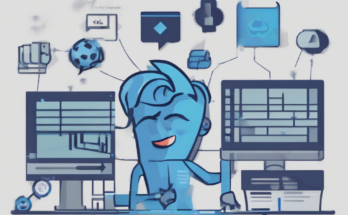Smart Recovery San Diego: A Comprehensive Guide to Self-Empowerment and Addiction Recovery
Smart Recovery is a science-based, self-empowering addiction recovery program that offers a unique alternative to traditional 12-step approaches. In San Diego, this program provides a supportive and structured environment for individuals struggling with various addictions, including alcohol, drugs, gambling, and other behavioral addictions. This guide delves into the specifics of Smart Recovery San Diego, outlining its principles, methods, and the benefits it offers to those seeking lasting recovery.
Understanding Smart Recovery’s Philosophy
Unlike some recovery programs that rely heavily on spirituality or external authority, Smart Recovery emphasizes self-directed change through cognitive behavioral therapy (CBT) and related techniques. The program empowers individuals to take control of their recovery journey, fostering self-efficacy and promoting long-term success. Central to Smart Recovery’s philosophy are four key components:
- Building and Maintaining Motivation: Smart Recovery helps individuals identify and strengthen their reasons for wanting to change, addressing ambivalence and overcoming obstacles to commitment.
- Coping with Urges: The program provides practical strategies and techniques for managing cravings and urges, enabling individuals to navigate high-risk situations and prevent relapse.
- Managing Thoughts, Feelings, and Behaviors: Smart Recovery utilizes CBT principles to help individuals identify and challenge negative thought patterns, develop healthier coping mechanisms, and modify destructive behaviors.
- Living a Balanced Life: The program focuses on developing a holistic approach to recovery, encompassing physical health, mental well-being, and social connections.
Smart Recovery San Diego: Meeting Locations and Formats
Smart Recovery San Diego offers various meeting formats to cater to different needs and preferences. These meetings typically involve group discussions, skill-building exercises, and peer support. The specific locations and schedules of meetings can vary, so it’s essential to check the official Smart Recovery website or contact local chapters for the most up-to-date information. Some common formats include:
- In-Person Meetings: These meetings provide a face-to-face setting for interaction and support among participants and facilitators.
- Online Meetings: For those who prefer or require remote participation, online meetings offer the same principles and techniques in a virtual environment.
- Self-Help Resources: Smart Recovery provides numerous self-help resources, including workbooks, online forums, and educational materials, allowing individuals to engage with the program at their own pace.
Benefits of Choosing Smart Recovery San Diego
Smart Recovery offers a range of advantages for individuals seeking addiction recovery in San Diego:
- Scientifically Based Approach: The program’s foundation in CBT and other evidence-based practices ensures that individuals receive effective and scientifically proven strategies for recovery.
- Self-Empowerment: Smart Recovery promotes self-reliance and personal responsibility, fostering a sense of agency and control over one’s recovery journey.
- Flexibility and Accessibility: With both in-person and online options, Smart Recovery offers flexibility to accommodate various schedules and circumstances.
- Cost-Effectiveness: Compared to some other treatment options, Smart Recovery is generally more affordable, making it accessible to a wider range of individuals.
- Strong Community Support: The program fosters a supportive community of individuals who understand the challenges of addiction and offer encouragement and shared experience.
- Focus on Long-Term Sustainability: Smart Recovery equips individuals with the skills and tools necessary for long-term recovery, promoting lasting change and preventing relapse.
The Role of Cognitive Behavioral Therapy (CBT) in Smart Recovery
CBT plays a central role in Smart Recovery’s methodology. This therapeutic approach focuses on identifying and modifying maladaptive thought patterns and behaviors that contribute to addiction. In Smart Recovery meetings and resources, individuals learn to:
- Identify Cognitive Distortions: Learn to recognize and challenge negative or irrational thoughts that perpetuate addictive behaviors.
- Develop Coping Strategies: Acquire practical techniques for managing urges, cravings, and high-risk situations.
- Behavioral Modification: Implement strategies to change destructive behaviors and replace them with healthier alternatives.
- Relapse Prevention Planning: Develop personalized plans to anticipate and mitigate potential relapse triggers.
Addressing Specific Addictions within Smart Recovery San Diego
Smart Recovery’s principles and methods are adaptable to various addictions. Whether it’s alcohol, drugs, gambling, or other behavioral addictions, the program provides a framework for addressing the underlying issues and developing effective coping mechanisms. In San Diego, individuals can find support groups and resources tailored to their specific addiction, ensuring they receive relevant and targeted assistance.
- Alcohol Addiction: Smart Recovery helps individuals address the cognitive and behavioral aspects of alcohol dependence, promoting abstinence or moderation.
- Drug Addiction: The program provides strategies for managing cravings, resisting peer pressure, and developing healthier coping mechanisms for drug-related triggers.
- Gambling Addiction: Smart Recovery addresses the compulsive nature of gambling, helping individuals develop impulse control and manage financial aspects.
- Other Behavioral Addictions: The program’s flexible approach can also be applied to other behavioral addictions such as internet addiction, sex addiction, or shopping addiction.
Finding Support and Resources in San Diego
Individuals seeking Smart Recovery support in San Diego should start by visiting the official Smart Recovery website. This website provides a comprehensive list of meetings, resources, and contact information for local chapters. It’s crucial to find a meeting that fits one’s schedule, location preferences, and specific needs. The website also offers a wealth of self-help materials, including workbooks, articles, and online forums, which can be valuable supplemental resources for individuals engaged in the program.
Connecting with other individuals in recovery can be incredibly beneficial. Smart Recovery meetings provide opportunities for peer support, shared experiences, and mutual encouragement. The supportive environment fostered within these meetings can be a significant factor in the success of one’s recovery journey.
Integrating Smart Recovery with Other Treatment Modalities
Smart Recovery can be effectively integrated with other treatment modalities, such as therapy, medication-assisted treatment (MAT), and other support services. For example, individual or group therapy can address underlying psychological issues contributing to addiction, while MAT can help manage withdrawal symptoms and cravings. Smart Recovery can complement these treatments by providing practical coping skills and promoting self-empowerment.
It’s important to consult with a healthcare professional to determine the best treatment plan that incorporates Smart Recovery and other relevant approaches. A holistic and integrated approach can significantly enhance the chances of successful and long-lasting recovery.
Long-Term Success and Relapse Prevention
Smart Recovery emphasizes the development of long-term strategies for maintaining sobriety and preventing relapse. The program equips individuals with a comprehensive set of tools, including coping skills, relapse prevention planning, and strategies for managing high-risk situations. Regular attendance at meetings, consistent engagement with self-help resources, and ongoing support from peers and professionals can all contribute to long-term success in recovery.
Relapse is a common experience in addiction recovery, and Smart Recovery provides a framework for addressing setbacks constructively. Individuals learn to view relapse not as failure, but as an opportunity for learning and growth. Through relapse prevention planning and continued self-reflection, individuals can use past experiences to improve their recovery strategies and build resilience.
The Importance of Self-Compassion and Self-Acceptance
Smart Recovery encourages individuals to cultivate self-compassion and self-acceptance throughout their recovery journey. This involves acknowledging imperfections, practicing forgiveness, and recognizing that recovery is a process, not a destination. Self-criticism and self-judgment can be significant obstacles to recovery, and Smart Recovery helps individuals develop healthier self-perceptions that foster resilience and support their progress.



